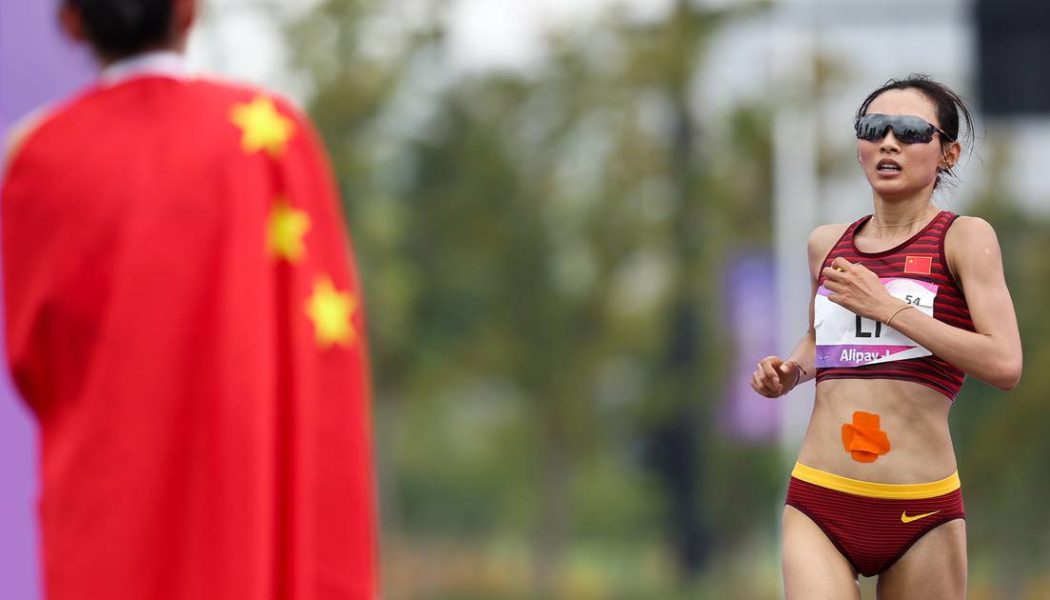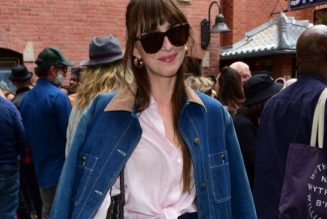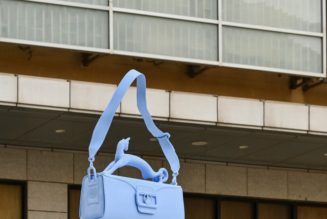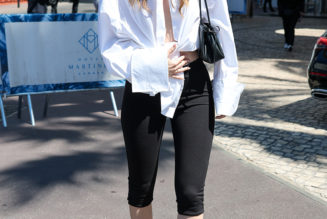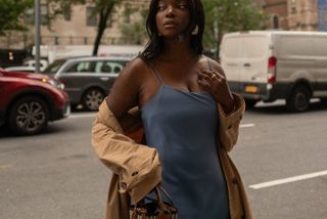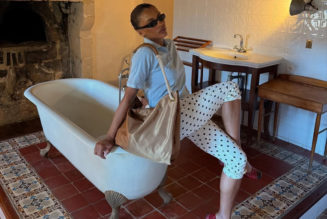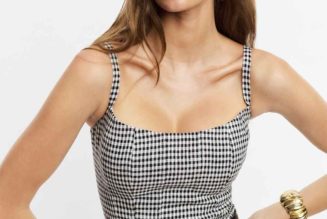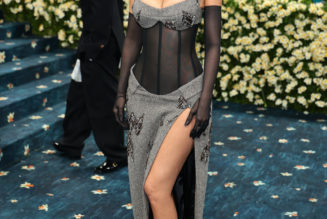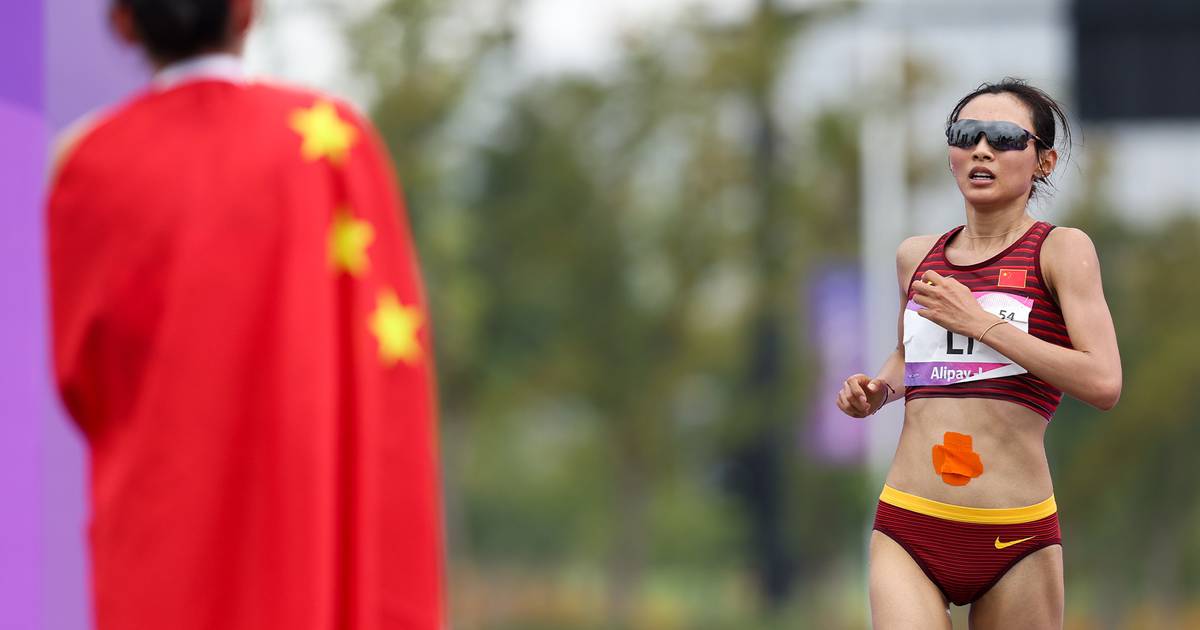
On Friday, Tiffany & Co announced that it will for the first time serve as an official partner of the Shanghai Marathon. At the end of the month, the top three finishers of the race in both the men’s and women’s categories will all receive medals designed by the luxury brand. That same day, Chanel held its cruise show in Shenzhen, creating its own version of a basketball court for the runway.
These types of marketing links between fashion and sport are now commonplace around the world but, in China, they have reached fever pitch as luxury brands pursue related strategies including the hiring of local athletes as brand ambassadors.
For example, Chinese surfer Guo Shujuan has partnered with Chanel, Calvin Klein and Tommy Hilfiger, while appearing on local editions of Vogue, Elle, Harper’s Bazaar and Marie Claire. In an early move in the space, Christian Dior cast Winter Olympics speed skating champion, Zhong Hong and rhythmic gymnast, Zhang Doudou alongside other female athletes for a 2021 ad.
Looking to broaden their appeal in the all-important market and mitigate the risks associated with scandal-prone entertainers, brands see athletes as more wholesome and disciplined alternatives.
Epitomised by the likes of Eileen Gu, the Olympic freestyle skier who represents Estée Lauder, Louis Vuitton and Victoria’s Secret among others, sports stars typically promise brands enviable physiques to show off their clothes, shaped through hard work, grit and determination, and are also usually from more relatable backgrounds than performers.
“Nowadays, luxury brands choose to work with more… athletes [through] endorsement marketing with two main purposes: firstly, to enhance the brand’s positive image; the second is to transform the followers of sports stars into potential fans of the brand,” said Stella Song, founder of Socialight, a Shanghai-based communications and digital marketing agency that works with companies like Net-a-Porter and JW Anderson.
The pitfalls of scandal-prone entertainers
Although a country as large as China has always had a thick web of sociocultural and political issues to navigate, there is a sense in fashion marketing circles that it has gotten more complicated in recent years — and a feeling of exasperation among brands that extensive due diligence on celebrities does little to head off controversy. In part, that is because even seemingly small infractions can cause controversy.
Chinese actress Angelababy and K-pop group Blackpink member Lisa recently both had their social media accounts abruptly shut down by the Chinese government, reportedly over the authorities’ objection to Lisa’s performances at the burlesque show Crazy Horse in Paris. Although the venue issued a statement saying that Angelababy was not present at the show, that did not stem online backlash that the show is too risque or deemed morally corrosive to Chinese society.
By contrast, one of the most egregious examples of a celebrity brand ambassador gone wrong is Kris Wu, now serving out a 13 year jail sentence for rape. He was closely associated with Louis Vuitton but had a string of lucrative deals from many top brands including Bulgari, Lancôme and L’Oréal, who moved quickly to drop him.
But when it comes to brand ambassadorships in China, Prada has had a tougher run of it than most. Online observers have suggested that the Italian luxury brand was cursed, or at the very least unlucky, in recent years as one celebrity partner after another found themselves mired in controversy.
There was actress Zheng Shuang, whose Prada ambassadorship lasted just nine days, after she was embroiled in a surrogacy scandal. Last year, another one of its ambassadors, actor Li Yifeng, got the axe just 10 months into his contract after he was detained on prostitution charges. Actor-singer Cai Xukun, who has helped to revive the brand in China since 2019, has also not been immune. This summer, he was accused of forcing a woman to get an abortion, something he denied. So far, his contract remains intact.
Prada did not respond to a request for comment in time for publication but the brand’s latest marketing moves speak volumes about the need for a change of tack.
In June, as the world geared up for the women’s football World Cup, Prada said it would serve as the official partner for the Chinese national team. The public reacted with delight that their “steel roses,” as the team is affectionately known, would be dressed by Prada and the hashtag #PradaFoundTheRightPerson began trending on social media platform Weibo, gaining 140 million views.
Besides the women’s soccer team, Prada signed table tennis player Ma Long, an emblematic figure of his generation, in January, and basketball player Yang Shuyu in May. It also shot a campaign for Douyin, the short-video platform owned by TikTok parent Bytedance, with four female Olympians — shotput athlete Gong Lijiao, marathon runner Li Zhixuan, water polo player Xiong Dunhan and basketball star Yang Shuyu — showcasing a diverse range of body types.
Patriotic public figures of substance
While athletes are seen by many as a category of public figures less prone to scandal than their counterparts in entertainment fields like cinema, television and music, no category is completely immune. Olympic Chinese table tennis player Zhang Jike was caught in controversy over a sex tape this April but, in general, the strict training schedules in which athletes abstain from drinking and partying for much of the year make them a safer bet in the eyes of marketing partners.
What’s more, sports stars are considered patriotic figures since they frequently represent their nation in competition, meaning they also help Chinese government-aligned goals like promoting healthier lifestyles among the population. Between 2017 and 2020, the number of national sports venues increased by 89.7 percent in the country.
With so much institutional investment in sport, China is producing a greater number of high-calibre sports stars. Tennis player Zhang Zhizhen in July became the first Chinese man to break into the top 100 world rankings, also becoming the highest ever ranked male Chinese tennis player. Meanwhile, 13-year-old Cui Chenxi won gold in women’s skateboarding at the Asian Games this fall.
Sport is also seen as a more meritocratic pursuit than entertainment where the talent shortcomings of so-called “nepo babies,” children of celebrities who are increasingly common in modelling and acting, can often be concealed by post-production.
Brands are not the only fashion businesses expanding their muse repertoire. Vogue China editor-in-chief Margaret Zhang said on a recent episode of the magazine’s podcast that she wants “to showcase talent who can be role models for our audience regardless of their discipline or craft or industry.”
For September, Zhang dedicated the title to sports stars tied to the Asian Games, which concluded in October in Hangzhou. “Are they a person of substance? The level of dedication that athletes need to have, it’s really worth celebrating in Vogue.”
The shift to sportsmen and women is also happening at a time, in which China’s biggest influencers have taken hits to their reputations. Famous online faces like Li Jiaqi (aka Austin Li), Viya and Cherie have all suffered scandals and, although they have returned to livestreaming, their activities have been much more subdued.
The high cost associated with entertainers is another consideration for the switch to alternative endorsers like athletes.
“The typical top-tier [entertainment industry] celebrity endorsement fee is usually over ten million yuan ($1.3 million),” Song said. “So once the brand chooses a celebrity… they face the risk of the [financial outlay going to waste during a scandal as the] brand’s image [is] linked to the celebrity’s personal reputation.”
By diversifying their celebrity marketing strategies to include athletes, luxury brands can essentially spread their investment risk.
